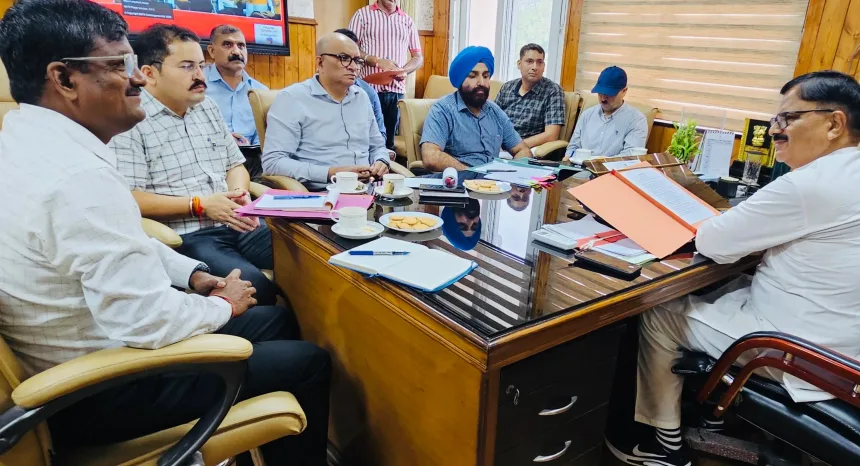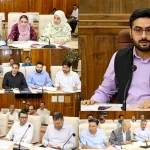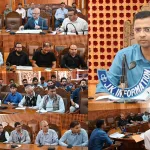Jammu, Sep 02: Minister for Forests, Ecology & Environment, Javed Ahmed Rana today convened a review meeting in Jammu to take stock of the Jammu’s environmental challenges and the progress of key forest and conservation initiatives.
According to a statement issued here, The Minister called for strict measures for forest conservation efforts in the region and urged enforcement agencies to adopt stricter monitoring and control mechanisms.
He also directed agencies to strictly monitor pollution levels, especially in areas near forests and water bodies.
During the meeting, concerns were also raised over soil erosion and landslides in hilly areas of Chenab Valley, Reasi, and Udhampur where fragile terrains are under pressure.
Officials presented ongoing afforestation and slope stabilization works, with the Minister urging scientific planning and better coordination with geotechnical experts.
Rana also reviewed the progress under CAMPA and other plantation schemes while stressing the importance of survival rates and community involvement. He appreciated the growing role of local institutions and volunteers in forest drives and awareness campaigns.
Promoting eco-tourism was identified as a key opportunity for sustainable development, with a clear directive that all tourism efforts must protect natural habitats and involve local communities.
He underlined the need for increased environmental awareness, particularly among youth.
He praised outreach programmes in schools, villages, and the contribution of Van Mitras and NGOs in spreading environmental education and mobilizing local support.
Calling for stronger inter-departmental coordination, Rana urged joint efforts from Rural Development, Tourism, PWD, Pollution Control Board, and Urban Local Bodies to address environmental issues comprehensively.
Meanwhile, in the aftermath of the recent floods that caused significant disruption across Poonch district, Javed Rana, today conducted a detailed virtual review of the relief and restoration efforts underway.
During the meeting, the Minister emphasised the urgent need for efficient planning and execution of restoration measures. He directed all concerned departments to ensure that restoration work is carried out without delay and that departmental heads personally oversee on-ground operations to accelerate progress.
He underlined that the focus must remain on quick resumption of essential services, including water supply, power, road connectivity and the distribution of food grains and other critical commodities, particularly in remote and vulnerable areas.
The Minister called for a comprehensive and inclusive rehabilitation strategy for affected families, along with the implementation of long-term preventive measures to mitigate the impact of future disasters.
He urged officials to ensure that compensation and relief support are delivered swiftly and fairly, with special attention to the most affected and at-risk populations.
Highlighting the need for safety in educational institutions, Rana stressed the importance of conducting thorough structural audits of schools in flood-hit areas.
He directed the concerned departments to identify vulnerable school buildings, carry out urgent repair works and ensure that learning institutions are safe for students and staff.
As part of the damage assessment, the Deputy Commissioner Poonch, Ashok Kumar Sharma briefed the Minister on the overall impact of the floods on infrastructure.
He informed that 18 schools in the district sustained damage, primarily involving boundary walls, and that four schools require immediate restoration to ensure operational safety. These schools have been prioritized for repair to ensure the timely resumption of academic activities.
Regarding road infrastructure, the Minister was informed that of the 71 roads damaged in Mendhar subdivision, 65 have already been restored to motorable condition, with the remainder under active repair.





